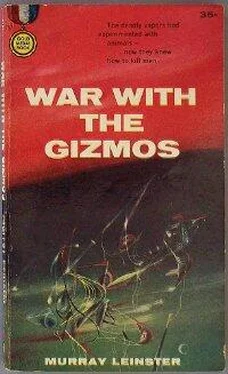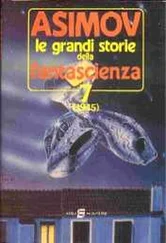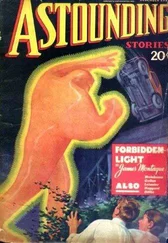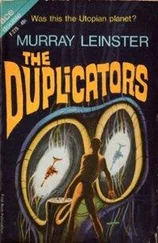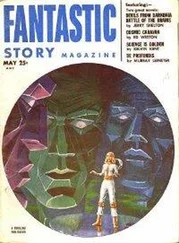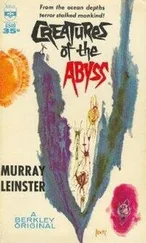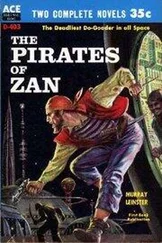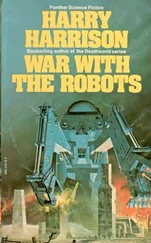Murray Leinster - War with the Gizmos
Здесь есть возможность читать онлайн «Murray Leinster - War with the Gizmos» весь текст электронной книги совершенно бесплатно (целиком полную версию без сокращений). В некоторых случаях можно слушать аудио, скачать через торрент в формате fb2 и присутствует краткое содержание. Год выпуска: 1958, Издательство: Fawcett Gold Medal, Жанр: Фантастика и фэнтези, на английском языке. Описание произведения, (предисловие) а так же отзывы посетителей доступны на портале библиотеки ЛибКат.
- Название:War with the Gizmos
- Автор:
- Издательство:Fawcett Gold Medal
- Жанр:
- Год:1958
- ISBN:нет данных
- Рейтинг книги:5 / 5. Голосов: 1
-
Избранное:Добавить в избранное
- Отзывы:
-
Ваша оценка:
- 100
- 1
- 2
- 3
- 4
- 5
War with the Gizmos: краткое содержание, описание и аннотация
Предлагаем к чтению аннотацию, описание, краткое содержание или предисловие (зависит от того, что написал сам автор книги «War with the Gizmos»). Если вы не нашли необходимую информацию о книге — напишите в комментариях, мы постараемся отыскать её.
War with the Gizmos — читать онлайн бесплатно полную книгу (весь текст) целиком
Ниже представлен текст книги, разбитый по страницам. Система сохранения места последней прочитанной страницы, позволяет с удобством читать онлайн бесплатно книгу «War with the Gizmos», без необходимости каждый раз заново искать на чём Вы остановились. Поставьте закладку, и сможете в любой момент перейти на страницу, на которой закончили чтение.
Интервал:
Закладка:
“Burke?” said Lane sharply. “You okay?”
Carol swung the torch about. She used it, stabbing emptiness before Burke’s contorted, fear-crazed face. His breath stopped. There was a flicker of light, then, and he collapsed into shuddering limpness.
“That,” said Lane, “is how people in cars on the highway get killed—not in hollows, but anywhere. It disposes of the idea that Gizmos are intelligent and purposeful, but it doesn’t make things look any brighter.”
It didn’t. It only made them more understandable. Now that Gizmos had acquired the instinct to hunt instead of scavenging only, their pattern of action was clear. They were social creatures in the sense that they moved and fed in groups or flocks. As is usual among all social creatures, at any moment there were individuals separated from their fellows, and they would commit individual atrocities. Some, on the other hand, would be surfeited, not interested in hunting. But they all would tend to hunt by night and feed by day. In their native forests they drifted in grisly, faintly whining masses, flowing invisibly between the trees and through the underbrush. In a sense they grazed, in that they sought their subsistence on a broad, deep front, on which they murdered every bird, every animal, every insect. When they found running animals in any number, it was their custom to round them up into terrified groups whose frenzy made them mutually prevent each other’s escape. Then the Gizmos killed them.
It was an admirable device for food gathering. Lane pictured the over-all situation as one in which such masses of invisible horrors flowed slowly and terribly everywhere. They would be attracted from many miles by the scent of the stockyards. They would go blindly to that scent of prey. They had attacked this car because it had disturbed them, but, mindless as they now appeared to be, they killed human beings. They were capable of rage. They furiously attacked any place where one of them was held captive. They acted as if they were capable of enormous vindictiveness.
Rage, indeed, might have substituted for reason to make them trail Lane and the others across the mountains to where Burke had picked them up in the car. Fury over the death-cries of their fellows might have produced the cloud formation over the filling station. It need not have been hatred against them as specific persons; it could have been anger at prey which had turned upon them. They had no fangs to bare, nor any claws to extend. They could perform mass-movements out of emotion as other creatures crouched to spring.
Lane, driving through the dark, did not think of such fine details. He imagined creeping, crawling crowds of Gizmos flowing across the countryside, killing every living creature. If such a swarm should flow into a city…
The first report of such an event came from St. Joseph, Missouri.
Chapter 11
The St. Joseph incident did not get into the news reports. But on the outskirts of the town there was a gigantic poultry farm devoted to the raising of fowl for meat rather than the production of eggs. The chickens therefore ranged outdoors, with small buildings in which to roost at night. The fowl-runs extended in a long row beside a highway, to make the maximum display to motorists who passed. There were signs advertising live fowl, dressed fowl, plucked fowl, frozen fowl, and fowl in sections. There was even a group of roasting spits in a window of the sales building where one could order fresh-roasted chickens.
At nine o’clock in the morning frenzy struck the chickens in the farthest of the fowl-runs. At one end of that wire enclosure, chickens suddenly flung themselves crazily about, tumbling end over end, flapping hysterically. Others flapped and squawked madly away from that part of the run. Attendants at the farm went hurriedly to find out what was the matter. Up to this moment, the doings of the Gizmos had been matters St. Joseph had only read and heard about. People were jittery, but not quite scared.
A helper opened a gate into the last yard and went in. Struggling, frantic fowl were piled deep against the end of this particular enclosure. He heard whinings in the air, but he moved to clear away the panicky pile-up of chickens, which might suffocate in the press. He grabbed a flapping, frantic, but silent hen to toss it away from the fence. It did not writhe, it squirmed, its beak open but no sound coming out of it, its eyes glazing. At the same time, the helper heard a strident humming whine very close to him. The chicken in his hands ceased to struggle save for convulsive, dying shudders. There was no reason for it to die, but it seemed to do so.
Then something brushed against his face. Instinctively, he swiped at it with the feathered object in his hand. There was a frantic, high-pitched buzzing whine, and then his breathing ended. He tried to gasp and could not. He stood paralyzed by fright and shock, with the flapping chickens hurtling crazily about him. One struck him in the face and saved his life. Because at the impact the angry whining in his ears rose even higher, and he could breathe.
He fled.
He was incoherent, but he babbled that things tried to choke him, and the chickens in the next to the farthest run began to die as those in the farthest grew still. Invisible death came very slowly and very deliberately along the long line of fenced enclosures, and foot by foot the chickens in them died.
There were too many witnesses and the succession of events was much too clear for this to be taken for a plague. Those who had stopped to buy chickens, the men who worked at the farm, even a state patrolman saw it. He was the one who linked the whining with the deaths, and he concluded that the chickens were being killed by a cloud of insects which were too small to be seen clearly. His premise was wrong, but his reasoning was sound. He concluded that if one breathed through a cloth, the insects would be kept out of one’s lungs. He tried it, to drive the onlookers out of danger; he was an intelligent and a courageous man, that trooper.
The creeping cloud of suffocation enveloped the entire poultry farm after the state patrolman had gotten the people out of its way. It went on, invisibly, terribly, into the heart of the suburb whose edge touched the farm. There were two human deaths in that suburb. The patrolman tried to alarm everybody. He sent those he warned to warn others. Two stubborn, suspicious individuals refused to stir. He saved all the rest. Two-thirds of a new housing development was enveloped by something nobody could see but which could be heard as a thin, hungrily complaining sound as its cause moved murderously onward.
It occupied six blocks of brand-new houses, with only two human fatalities. But then, as blindly and as mindlessly as it had entered the suburb, the swarm of monsters flowed in its grisly, slow-motion fashion off into woodland nearby, where it killed innumerable wild bees, rabbits, grubs, ants and beetles. Later there was another gruesome find there, too, but it had nothing to do with the Gizmos.
This did not get into the newspapers because the public was already jumpy enough. There were elaborate precautions in force to prevent further alarm. Preventing panic was something that could be done; they couldn’t think of anything else that seemed practical. But the means chosen for the prevention of terror had some odd side effects. For example, it was not possible for Professor Warren to reach anybody in Washington to tell them something even more useful to do.
The acceptance of telephone calls from the country districts—in fact all long-distance calls other than official ones—were stopped. This was to keep panic from being conveyed into the cities from the open country. When Professor Warren tried to make a call to Washington, she was politely told that no trunk lines were available. The same thing happened each of the other six times Lane stopped the car at a back-road garage or store where a telephone might be found.
Читать дальшеИнтервал:
Закладка:
Похожие книги на «War with the Gizmos»
Представляем Вашему вниманию похожие книги на «War with the Gizmos» списком для выбора. Мы отобрали схожую по названию и смыслу литературу в надежде предоставить читателям больше вариантов отыскать новые, интересные, ещё непрочитанные произведения.
Обсуждение, отзывы о книге «War with the Gizmos» и просто собственные мнения читателей. Оставьте ваши комментарии, напишите, что Вы думаете о произведении, его смысле или главных героях. Укажите что конкретно понравилось, а что нет, и почему Вы так считаете.
